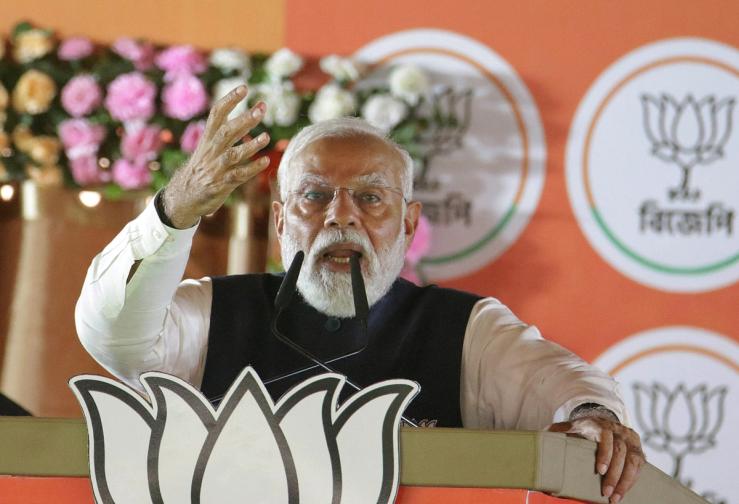The News
India’s multi-week election kicked off on Friday, with Prime Minister Narendra Modi widely expected to secure a third consecutive term in office. Voting will be carried out in seven stages over the next six weeks with final results expected on June 4.
SIGNALS
Election a fight for future of world’s largest democracy
Modi and his governing Bharatiya Janata Party are on track to secure a rare third consecutive term — something that could pose a threat to democracy in India, Shashi Tharoor, a prominent opposition member of parliament and author, wrote in The Hindu. Democratic norms have been eroded under Modi’s rule, as he and his party have promoted an aggressive Hindu nationalism and intimidated the press, he argued. India is facing a split down religious lines, Tharoor wrote — something past elections have attempted to avoid. “Petrified of the power of a united people, [the government] has sought to divide us, hoping we never rise as one in defence of our republic,” he wrote. “The choice is ours. We have already witnessed a partition of the Indian soil; the past decade has threatened to partition the Indian soul.”
Indian voting pattern upends global norms
Educated, younger Indians tend to support Modi, and often argue that he is different from other populist leaders, Arjun Ramani noted in The Economist. The trend of India’s educated “elites” voting for Modi bucks a longstanding trend elsewhere in the world, where educated young people tend to eschew populism and vote for left-leaning candidates. Modi’s support transcends income classes and education levels, largely because the BJP has positioned itself as a “pan-Hindu” party that represents all Hindus, regardless of caste. Meanwhile, his strongman image bolsters his standing across the country. “India’s elites see Mr Modi’s foreign policy as nationalist yet pragmatic. They like the way he thumbs his nose at liberal Western institutions and the media, in a similar fashion to other anti-globalist strongmen,” Ramani wrote.
Western allies have ‘downplayed’ concerns over threat to Indian democracy
The U.S. and other Western nations have so far remained quiet over concerns that the democratic landscape in India is changing. That is due in large part to the West’s eroding ties with China, Bloomberg reported. The U.S. views India as a regional counterbalance to Chinese dominance, and so “the broad trajectory of the relationship” between the West and India “is likely to continue,” the outlet wrote. The partnership isn’t without tensions: Unlike the West, India has so far opted to remain neutral over Russia’s war in Ukraine, and hasn’t applied the same sweeping sanctions on Moscow.



